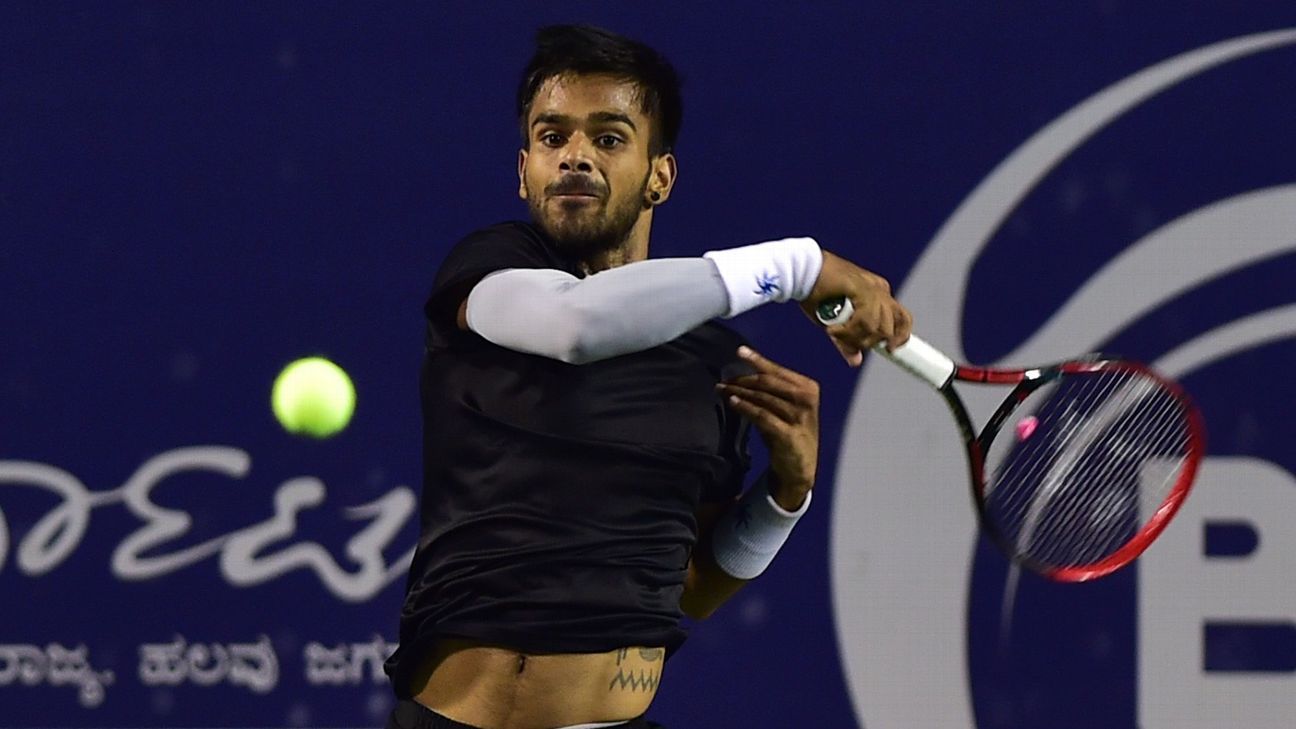Sumit Nagal hasn’t been home to India since he played the biggest match of his life four weeks ago.
He’s still a journeyman, flitting between Challenger tournaments, checking for Airbnb listings in the cities he’s traveling to and washing his tennis gear in hotel baths. Now though, occasionally he runs into a friendly smile, a good-hearted cheer or a fist bump, which tells him that his 150-minute stay under the blinding Arthur Ashe lights, against a 20-time Grand Slam superstar, hasn’t been forgotten.
Last weekend, the 22 year-old won his second Challenger title in two years, after a straight-sets result against Argentine eighth seed Facundo Bognis in Buenos Aires. It moved him up 26 spots to a career-high No. 135 in the world. This, from being placed outside 300 only in May this year.
“It’s just everything that I’ve been trying to do for the past one year, slowly adding up now. It’s nice when people stop to tell you that you put up a good fight against Federer,” says Nagal, “You then realize that even if things don’t look up right away always, eventually, they do come around.”
He’s now travelling to Rio de Janeiro for a $25,000 prize fund clay court Challenger that begins next week and will keep up his South America trail with appearances in tournaments across Peru and Ecuador over the next couple of weeks. By the end of the year, Nagal wants to have played enough tournaments, with a few wins thrown in, to be able to fetch himself a top 100 spot and qualify for the Australian Open main draw.
Beyond the endless tournament grind, what journeymen also learn over weeks on the road, is to cut corners. Nagal is supported by the Virat Kohli Foundation and Indian Oil Corporation, but it’s just about enough to cover his own expenses. He’s mostly by himself at tournaments, since he doesn’t have the kind of money that could fund travelling costs of his coach Sascha Nensel and trainer Milos Galecic.
In Buenos Aires, he suffered from a severe bout of dehydration and had to get IV fluids injected. “I was alone in Buenos Aires because I couldn’t afford to have my coach or trainer accompanying me. It’s an expensive sport and sustaining yourself on the circuit as a singles player isn’t easy. Unless you’re entirely funded, you’re always counting the cost. Hotels tariffs can fall anywhere between $50-$150 a night, and to be able to foot charges for yourself and your coaches then for a week exceeds the budget.”
Nagal was dropped from the government-run Target Olympic Podium (TOP) scheme, which offers a monthly assistance of Rs 50,000 to medal-prospect athletes named under it. In tennis, doubles players Rohan Bopanna and Divij Sharan are currently among its beneficiaries. “I was outside the top 300, so they may have been right to believe that I didn’t stand a chance to make it to the 2020 Olympics. I can’t complain. But I have performances over the past few months now, so hopefully, someone, somewhere is taking note.”
“I’m trying to find a way to be smart about it. I’ll work with what I have. And the only thing I have is a racket.”
